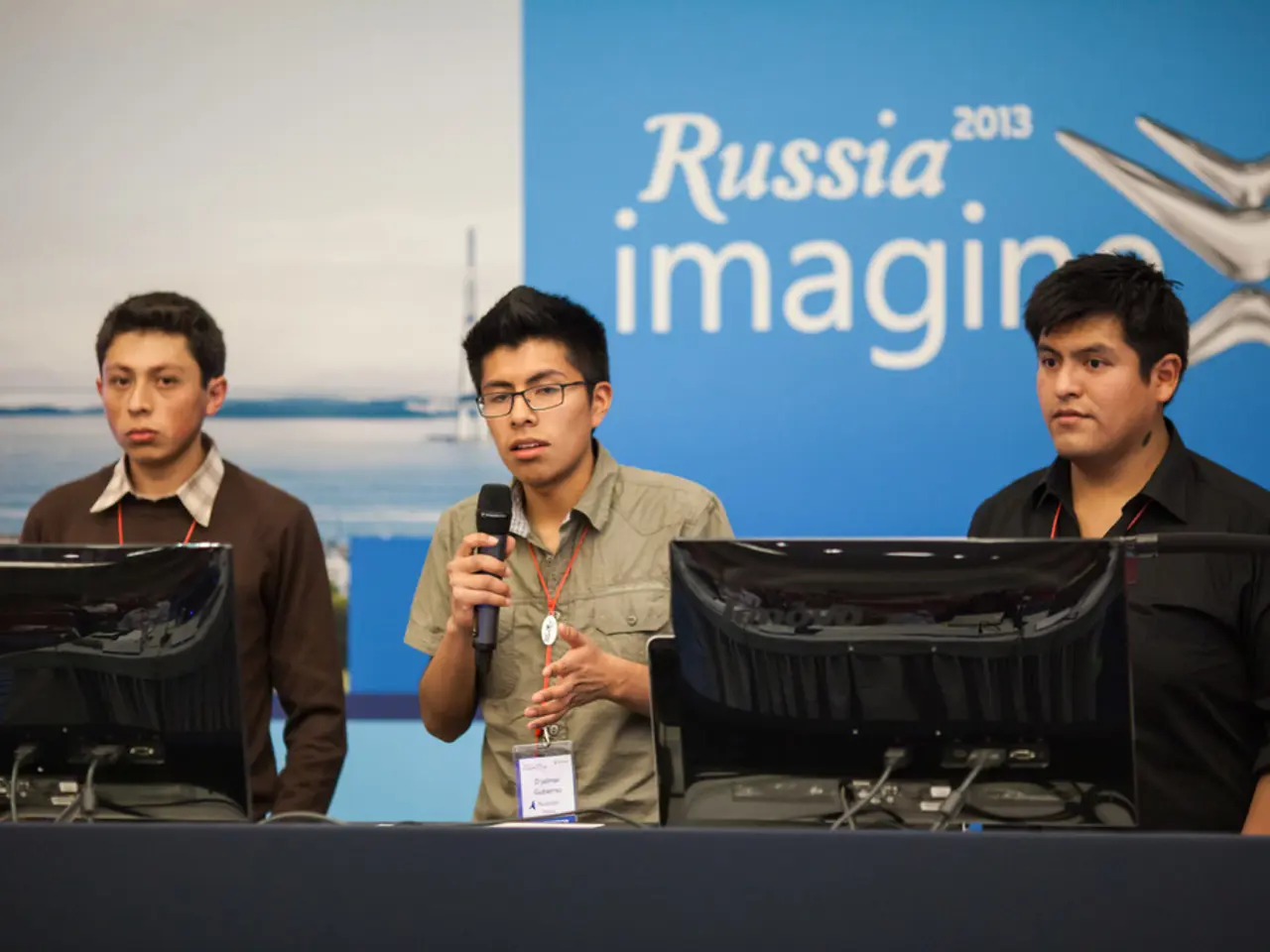Moscow voices discontent over Europe and Ukraine, as Kiev undergoes political transition
In the ongoing conflict between Russia and Ukraine, peace talks remain stalled with no signs of a breakthrough, as reported mid-July 2025. Despite renewed efforts and international involvement, including diplomatic engagements by leaders such as US President Donald Trump, UK Prime Minister Keir Starmer, and French President Emmanuel Macron, a comprehensive ceasefire or peace agreement remains elusive.
Russia continues to reject ceasefire ultimatums, demanding recognition of all currently occupied Ukrainian territory as Russian, guarantees against Ukraine joining NATO, and the lifting of sanctions, maintaining its original demands from 2022. Ukraine, on the other hand, seeks a full Russian troop withdrawal, the return of prisoners and kidnapped children, prosecution of Russian war crimes, and security guarantees to prevent future aggression.
The current negotiations stance is a significant barrier to progress. Russia's insistence on its original demands, coupled with Ukraine's firm position, has led to a stalemate in the peace talks. Occasional limited truces have been agreed upon since March 2025, but these remain fragile and do not represent a comprehensive ceasefire or peace agreement.
As the conflict continues, key figures in the negotiations are expected to change. Rustem Umjerov, who headed the Ukrainian negotiating delegation at the previous talks in Istanbul, is set to leave the government as part of a cabinet reshuffle. Kyiv will need to appoint a new chief negotiator before talks can continue.
The Ukrainian parliament, the Verkhovna Rada, has approved the resignation of Prime Minister Denys Shmyhal, and Julia Svyrydenko, currently Minister of Economy and Deputy Prime Minister, is set to be confirmed as the new Ukrainian Prime Minister as early as Thursday. However, as of July 2025, no new appointments of chief negotiators for either side have been publicly reported.
The war and negotiations remain dynamic and contentious, with no sign yet of a definitive peace deal or new chief negotiators emerging publicly. President Zelensky has repeatedly questioned the usefulness of negotiations in their current format and has pushed for a summit with Putin. The Kremlin, for its part, has accused Brussels and Kiev of fueling the ongoing war in Ukraine by spending vast sums on weapons.
Political observers suggest that President Putin's unwillingness to end the fighting may be a calculated move to exert maximum pressure on Kiev in negotiations. Meanwhile, Russia has issued numerous nuclear threats since the beginning of the attack war against Ukraine ordered by Kremlin chief Vladimir Putin.
As the situation unfolds, it is crucial to monitor developments closely. The Ukrainian Ambassador position, in particular, holds significant importance due to the favor the US government shows towards Ukraine. The previous Ukrainian Ambassador, Oxana Markarova, was reportedly replaced due to allegations of being too close to the Democrats. Rustem Umjerov, the former chief negotiator, is considered a candidate for the post of Ukrainian Ambassador to Washington.
In light of these developments, both sides are urged to continue dialogue and work towards a peaceful resolution. The international community, including leaders like Trump, Starmer, and Macron, should continue their efforts to facilitate negotiations and bring about a lasting peace. The Kremlin, for its part, has called on the international community to urge the Ukrainians to new negotiations.
As the world watches, the hope is that Russia and Ukraine can find a path to peace and put an end to the ongoing conflict. Only time will tell if the stalemate in the peace talks can be broken and a resolution can be reached.
The ongoing war-and-conflicts between Russia and Ukraine, as of July 2025, continue to be a key focus in politics, with no definitive peace deal in sight. The stalemate in the peace talks persists due to Russia's insistence on its original demands and Ukraine's firm position, as the negotiations remain dynamic and contentious. Despite the international community's involvement, including leaders like US President Donald Trump, UK Prime Minister Keir Starmer, and French President Emmanuel Macron, finding a general-news solution to this conflict remains elusive.








